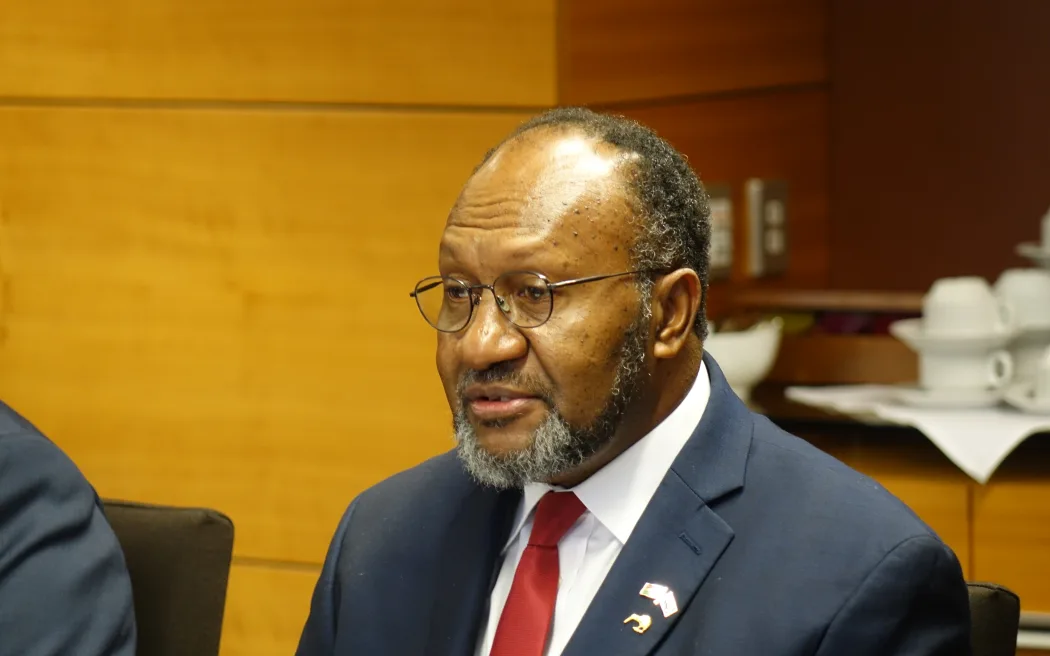The Melanesian Spearhead Group (MSG) leaders, meeting on the sidelines of the 53rd Pacific Islands Forum in Tonga, have called for a robust and unified approach to key regional issues, particularly the ongoing situation in New Caledonia.
Chaired by Vanuatu’s Prime Minister Charlot Salwai Tabimasmas, the MSG Leaders caucus focused on the challenges facing the Melanesian community and reiterated their commitment to the aspirations of the Kanak people.
The leaders highlighted New Caledonia as a priority, highlighting the importance of supporting the indigenous Kanak population’s right to self-determination.
President of New Caledonia Louis Mapou updated the MSG leaders on the recent political and social upheaval in the territory, which included law and order challenges and violent incidents that have raised concerns among the Kanak youth regarding their long-awaited independence.
“The foundations on which New Caledonian society was built are being called into question, with attacks on churches and schools,” Mapou reported, emphasising the deep-seated racial and societal issues that continue to plague the territory.
He appealed to the MSG leaders to press France for a quick reopening of negotiations on New Caledonia’s future status, with a clear pathway toward full sovereignty.
In response, the MSG leaders reiterated their support for the Front de Libération Nationale Kanak et Socialiste (FLNKS) and committed to stepping up diplomatic efforts at the United Nations and other international fora.
They also proposed that MSG security forces be considered to assist in maintaining law and order in New Caledonia if needed, signaling a readiness to provide tangible support.
During the caucus, the leaders also discussed the Policing Pacific Initiative (PPI) proposed by Australia, urging caution in its implementation.
Director-General of the MSG Secretariat, Leonard Louma, warned that while collective policing is not a new concept, any initiative must be tailored to the specific needs of MSG members and aligned with existing strategies such as the MSG Security Strategy.
Louma emphasised that MSG should leverage its sub-regional arrangements to contextualise and execute broader regional initiatives, thus avoiding external influences that do not align with Melanesian priorities.
The leaders agreed to take a measured approach, ensuring that any collective policing efforts are deeply rooted in the actual security needs of the Melanesian region.
A critical agenda item was the ongoing dialogue with Indonesia concerning the Melanesian population in the Papuan provinces. Despite previous attempts to engage directly with the Indonesian President, these efforts had not materialised, largely due to scheduling conflicts among MSG leaders.
The MSG leaders reaffirmed the need for a dialogue platform with Indonesia, highlighting its significance in addressing the welfare and developmental aspirations of the Papuan Melanesian community.
The leaders also backed the outstanding request by the Pacific Islands Forum for the United Nations Human Rights Commissioner to visit West Papua, reflecting ongoing concerns about human rights and self-determination in the region.
Looking ahead, the MSG leaders confirmed plans for a Special MSG Leaders Summit in Fiji this November, where they hope to continue discussions on critical regional issues and finalise a Draft Roadmap for Assistance to FLNKS.
The summit will also feature a formal handover of the MSG Chairmanship, marking a significant leadership transition within the group.
Additionally, the leaders welcomed an invitation from Papua New Guinea’s Prime Minister James Marape to attend the country’s 50th Independence celebrations in 2025 and the visit of the Pope in September 2024.
Marape suggested that another MSG Leaders Caucus could be convened during these events, underscoring the importance of maintaining a united front on Melanesian issues.
In his closing remarks, MSG Chair Charlot Salwai Tabimasmas urged the leaders to carry the spirit of solidarity demonstrated in the MSG Leaders Caucus into the broader Pacific Islands Forum discussions.
He stressed the importance of the MSG’s role in shaping regional policies that reflect Melanesian needs and cautioned against allowing external geopolitical influences to dictate the agenda.
The MSG leaders united in their resolve to advocate for the rights of the Melanesian people, whether in New Caledonia, West Papua, or across the broader Pacific region.
The MSG’s strong stance on New Caledonia and other key issues will be a critical voice in the ongoing dialogue on Pacific regionalism.

One Comment “Indonesia’s MSG bid on back burner: PM Marape”
Comments are closed.